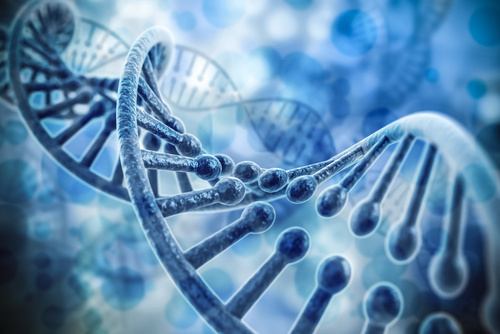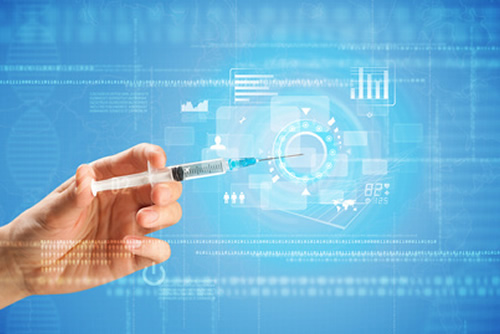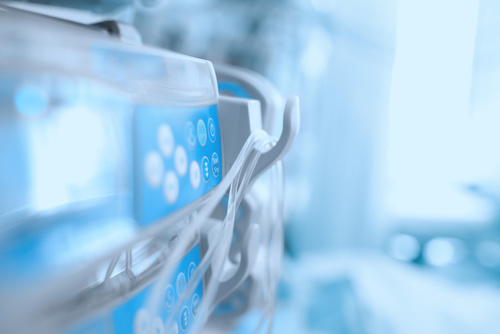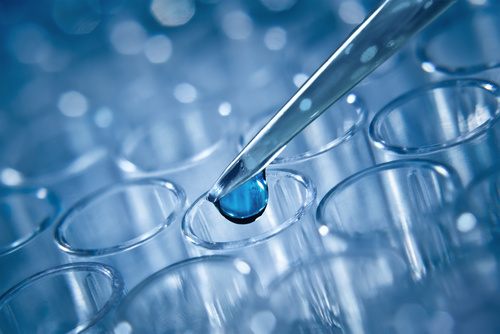PreOmics granted licence for proteomics technique
The start-up company PreOmics licenses several technologies of the Max Planck Institute of Biochemistry in Martinsried for the preparation of samples for proteomic research through Max Planck Innovation.
In particular, an innovative sample preparation kit facilitates the use of mass spectrometry for research into proteins. In the future this could open up new opportunities in pharmaceutical development and diagnostics.
Proteins carry out many important functions in the human body and are often called the building blocks of life. However, they are also responsible for the development of a broad range of disorders, including cancer, infectious diseases and Alzheimer’s disease. The field of protein research, known as proteomics, is therefore being vigorously pursued around the world with a view to gaining insights into how proteins function and interact and developing new therapeutic approaches.
The bewildering complexity of proteins poses an obstacle to this research field. The human body contains up to a million different proteins, which are produced by thousands of different genes. Moreover, the protein pattern (proteome, i.e. the collection of all the proteins in a cell or organism) is in constant flux, because new proteins are continuously synthesized and old proteins broken down or modified. One of the aims of proteomics is to identify protein malfunctions. New findings could lead to the development of innovative drugs, for example substances that dock to disease-causing proteins and prevent malfunctions. Interactions between drugs and proteins can also be investigated as well as potential side effects. Proteomics can also help in the development of new diagnostic tools based on the analysis of protein-protein interactions.
Mass spectrometry is becoming an increasingly important tool in proteomics. The technique allows researchers to determine the precise mass of molecules and to identify chemical compounds regardless of their complexity. To do so, they first ionize the molecules being examined and then separate and analyze the ions based on their mass-to-charge ratios.
However, the analysis of proteins usually involves the time-consuming preparation of samples. It can take up to five hours to prepare a sample, and large sample quantities are needed. This complicated process limits the routine use of mass-spectrometry-based proteomics and is often a barrier to obtaining meaningful results.
The company PreOmics has now developed the world’s first standardized sample preparation kit that simplifies mass spectrometry. The kit is a complete, fast and easy-to-use solution in a standardized vessel. Using the technology developed in Matthias Mann’s department at the Max Planck Institute of Biochemistry, researchers are able to prepare samples significantly faster for their analyses. “Our kit ensures robust, reproducible and fast sample preparation. The kit reduces the number of steps required from ten to just three. All the steps are carried out in a special vessel that minimizes potential contamination. It is also suitable for high-throughput sample preparation. Even non-experts can now use mass spectrometry and proteomics in basic research. The kit can also conceivably be used in drug development and diagnostics in the future,” says Nils A. Kulak, co-inventor and co-founder of PreOmics.
In January 2017, Max Planck Innovation granted a licence for the technology to PreOmics. “We’re thrilled that the technology of the Max Planck Institute of Biochemistry will be marketed by the inventors through a start-up company. The founders have extensive experience both in proteomics and in mass spectrometry and are familiar with customers’ needs,” says Mareike Göritz, senior patent and licence manager at Max Planck Innovation.
Kulak founded PreOmics GmbH together with Garwin Pichler in January 2016. In the same year, they presented their plan for developing products for preparing protein samples for mass mass-spectrometry-based proteomics. Thus, PreOmics won the Science4Life business plan competition, which recognizes business ideas that promote progress and quality of life. A major contract with the University of Copenhagen has also been drawn up, and the development of further products is in the pipeline.
04/24/2017 created by Max-Planck-Innovation GmbH












